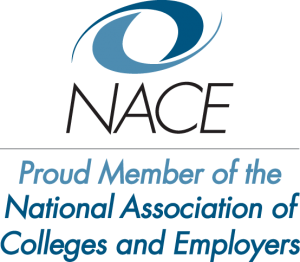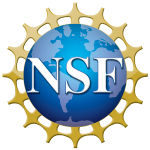Employers and educators frequently distinguish between hard and soft skills without really defining either one.
Reading between the lines, hard skills are generally perceived to be job-specific, like an auto mechanic diagnosing an engine problem or a dentist filling a cavity.
Soft skills tend to be those attributes common across most jobs and are comprised of interpersonal characteristics that affect interpersonal outcomes and/or affect self-management.
Most employers agree that soft skills are harder to find in the applicant pool, or that they are harder to test for during hiring. At jobZology®, we’re frequently asked if we assess soft skills.
Implicit in these discussions is that hard skills are, ummm, harder than soft skills. If hard skills are more difficult to acquire, then why do so many organizations find so-called soft skills more difficult to test for?
My title implies that it is really the “soft skills” that are not only hard to find but hard to develop. To make this point, I’ll first better distinguish between hard and soft skills in the workplace, link labeling to how skills are acquired, distinguish two types of soft skills, and then offer some suggestions on how organizations can build a workforce of “soft-skilled” employees.
Hard v. Soft Skills
Not only are hard skills job specific, but they are the focus of both many higher education and vocational training programs. Students who complete a training program to be a dental hygienist develop skills in performing diagnostic and panoramic x-ray, administering Novocain, and using dental equipment to remove plaque, tartar, and bacteria.
Not only can a badge, degree, or certificate provide some evidence of mastery of these skills, but they can be confirmed through a pre-hire assessment.
Note that we can also confirm soft skills through pre-hire assessments. Just as we could have applicants demonstrate how they would administer Novocain, we could ask them to demonstrate how they would reassure a nervous patient before giving the injection.
The line between hard and soft skills is blurred in other ways. Try this exercise before reading further. Use your favorite search engine and look for “technical skills for engineers.” Go ahead, I’ll wait.
As you go down the top entries, it will be very likely that along with skills such as computer modeling and mathematical computing, you’ll see: Communication skills, teamwork skills, leadership, project management, critical thinking and problem-solving. Wait, aren’t those soft skills?
My sense is in addition to “this job” v. “all jobs,” the difference between hard and soft skills is that the latter are rarely the focus of specific education and training programs. You can major in dental hygiene or mechanical engineering; it’s hard to major critical thinking and problem-solving.
That said, you may know that there have been many major efforts to identify critical “21st century skills” (which include communication, critical thinking, etc.) and integrate them into both primary and secondary education platforms (e.g., P21 and NEA). As a result of not being a primary area of academic study, soft skills have acquired the reputation as being less trainable, less critical to job success, and, well, softer.
However, it is virtually impossible to identify any job in which so-called soft skills are not among the important determinants of success on the job. The largest database of job-related information is the Department of Labor’s O*NET site. You can try the following exercise later, I’m not going to wait now. Search for a job and try to find ones that DO NOT emphasize soft skills. Here are some examples. For mechanical engineers, the first two skills listed are active listening and critical thinking. For accountant, active listening is first and critical thinking fifth. For registered nurses, it’s active listening, social perceptiveness, and service orientation. It’s a soft skills world, baby!
The Second Type of Soft Skills
In additional to social skills such as communication, active listening, and problem-solving, we often talk about a second set of soft skills that I refer to as self-management.
We want workers who display a strong work ethic, are self-starters, take feedback well, and who take pride in what they do and want to improve. All traits I think we ascribe to our grandparents.
These attributes can be what distinguishes employees we want to keep and invest in v. those we are happy to see leave. And, like the social skills, there are no education and training programs in “work ethic” or “desire to improve.” Even more so than social skills, we may think of these as innate traits of individuals and more difficult to train.
Hiring for Soft Skills aka New Hard Skills
It’s hard to imagine a manager who wouldn’t want employees who are industrious, eager to learn, AND good at communication and critical thinking. Yet, we struggle to fill our jobs with employees that demonstrate these “new hard skills.” Why is that?
I think in large part, we are looking in the wrong places.
When we look primarily at education and past work experience, we are going to see degrees and jobs held, and these rarely tell us anything about the new hard skills we are really interested in.
We may try to intuit applicant traits through an interview, but would a savvy job applicant admit that they are lazy and not good at problem solving?
For social skills, my recommendation is to treat them as we would any old hard skill. Generate work samples or structured interview questions that give the applicant the opportunity to demonstrate empathy, problem-solving, and persuasion. For example: “I’m a new patient that is scared to death of dental procedures. How would you calm me before I get a filling?”
For the self-management skills, consider a tool like jobZology’s Talent Analytics or Talent Insights.
We measure applicants’ interests and values, and then match them to job profiles to predict whether they will find the work interesting and meaningful. It is the match to interests that are key to predicting effective self-management.
Over sixty years of research reveal that when we are engaged in activities that match our work interests, we demonstrate “new hard skills” – we look forward to coming to work, we work hard and persist at what we do, we seek out feedback that helps us improve. Hiring on fit-to-job is the first step in improving the old soft skills/new hard skills of our workforce.







